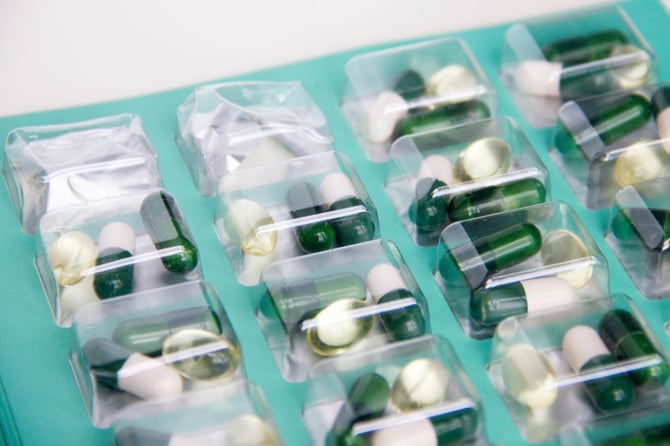
If you get recurrent urinary tract infections, you understand the struggle: do you wait until another UTI appears and treat it with antibiotics, or do you take something ahead of time to prevent the UTI from happening in the first place?
It may seem like a no-brainer, but many people who experience chronic UTIs are only given one prevention option: more antibiotics.
That’s right, despite rising bacterial resistance to antibiotics and safe alternatives like d-mannose, doctors regularly prescribe continuous low-dose antibiotics to prevent recurrent urinary tract infections.
New Study Focuses On UTI Prevention1
A new study published by the National Institute for Health Research in the United Kingdom ran a trial of 404 people who use catheters on a regular basis for clean intermittent self-catheterization (CISC) and have experienced either two urinary tract infections in the last year or have recently been hospitalized for a urinary tract infection.
The study randomly divided participants into two groups: 203 people took a prevention treatment and 201 people took no treatment.
Using Antibiotics For UTI Prevention
Patients in the treatment group were given a daily dose of antibiotics: either Nitrofurantoin, Trimethoprim, or Cefalexin.
Results Of The Study: A Dangerous Lack Of Concern
Patients receiving treatment experienced 48% fewer UTIs over the course of a year compared to the non-treatment group.

Patients were generally unconcerned about using antibiotics, including the possible development of antimicrobial resistance. This is the most concerning result of the trial. It is imperative that we educate the public about the dangers of over-using antibiotics.
“The main drawback [to this study] was that infecting bacteria were more likely to develop resistance to antibiotics in people taking [the treatment], making it more difficult to treat infection in those individuals and threatening public health.”1
SEE ALSO: A Safer Alternative: Why Prevention Is Better Than Antibiotics For UTIs
Why Overuse Of Antibiotics Is A Bad Thing
Besides the general harm antibiotics can wreak on your body (nausea, diarrhea, in some cases even nerve damage), antibiotics also clear out both good and bad bacteria indiscriminately, paving the way for new infections.
One post-antibiotic bacterial infection commonly found in hospitals is caused by the bacteria Clostridium difficile (AKA C. diff). In the last two decades, new strains of C. diff have emerged, causing more frequent and intense infections and affecting populations not normally at risk. This is due to overuse of antibiotics.
Think about it: by taking antibiotics continuously—even in low doses—you are regularly weakening your immune system. You may become more susceptible to minor infections like colds and sinusitis, or even more serious ones such as kidney or bladder infections.
Additionally, you are training the bacteria in your body to develop resistance to the antibiotics you are regularly taking. And that may not be an issue now, or even ten years from now, but it could very well affect you a ways down the line when you need antibiotic treatment the most.
So what’ll it be: short term relief or long term assurance?
The Good News: You Don't Have To Choose.

Here’s what you need to do:
1) Increase your water intake
2) Take d-mannose for UTI prevention.
One study demonstrated that women prone to recurrent UTIs who increased their water intake by an average of 1.15L per day reduced their recurrence rate by almost 50% compared to women who drank an average of only 1.2L per day.2
D-mannose has been proven in clinical trials to be as effective as—if not more than—the antibiotic Nitrofurantoin at preventing UTIs.3
SEE ALSO: The Burden Bearers: How UTIs Disproportionately Affect Women, Children, And The Elderly
What Is D-Mannose?
D-mannose is a naturally occurring sugar found in peaches, cranberries, and other fruit scientifically proven to prevent up to 85% of all urinary tract infections. D-mannose binds to the bacteria before the bacteria has a chance to implant itself into your urinary tract, flushing it out when you urinate.3
Where Do You Find D-Mannose?
D-mannose is the main ingredient in UTI prevention supplement Dmanna. Dmanna comes in powder form in convenient single-serving packets that you can add to water or any other drink. It’s a safe, affordable, and effective treatment for urinary tract infections and has no long term side effects.
Including Dmanna into your daily health routine allows you to stop the use of potentially harmful antibiotics and kill UTIs before they develop.
What are you waiting for? Click below to try Dmanna’s UTI prevention powder today!
- Continuous low-dose antibiotic prophylaxis to prevent urinary tract infection in adults who perform clean intermittent self-catheterisation: the AnTIC RCT
- Drinking More Water Reduces Repeat Urinary Tract Infections
- Intervening with Urinary Tract Infections Using Anti-Adhesives Based on the Crystal Structure of the FimH–Oligomannose-3 Complex
.png?width=165&name=manna%20(3).png)





.png?width=320&name=Dmanna%20Blog%20Featured%20Image%20(1).png)

